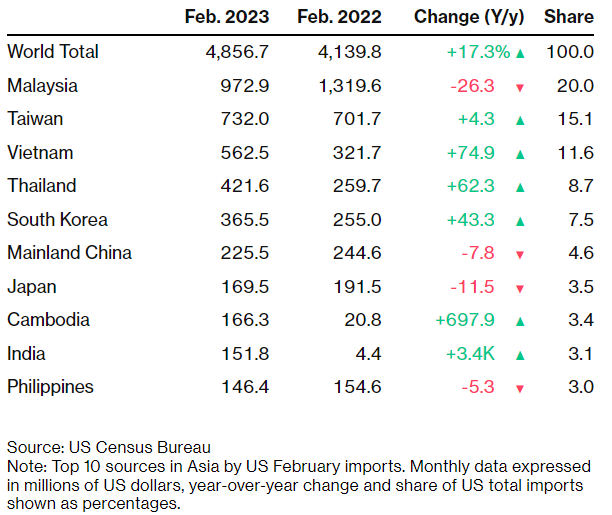The global shift in semiconductor production is benefiting emerging players such as Thailand, Vietnam, India, and Cambodia, which have shown promising growth this year. Traditional centers such as Taiwan and China are losing their dominance in this sector, and the US has increased its imports of chips by 17% from last year, with Asia accounting for 83% of the total.

India's semiconductor shipments have increased 34 times to $152 million, while Cambodia recorded an impressive 698% growth, reaching $166 million. Vietnam and Thailand, both of which have a significant share of the chipmaking market, saw their US trade in the sector grow by 75% and 62%, respectively. Vietnam has been responsible for over 10% of US imports for seven consecutive months.

US officials have expressed concern about their country's overreliance on overseas suppliers for the most advanced chipmaking. "Our dependence on Taiwan for chips is untenable and unsafe," said US Commerce Secretary Gina Raimondo at the Aspen Security Forum in July.
The latest data reflects the US's efforts to diversify its electronics supply chain, including Apple's gradual shift of iPhone production to countries like India. Malaysia still leads in US imports but saw its share drop to 20% of the total in February.
Semiconductors are essential components in computers, phones, home appliances, and other smart devices. The deteriorating relations between Washington and Beijing have forced each nation to rethink its supply strategies around them. Taiwan remains a critical player in the sector, with a 4.3% increase in shipments to the US from last year, accounting for 15% of its imports.







